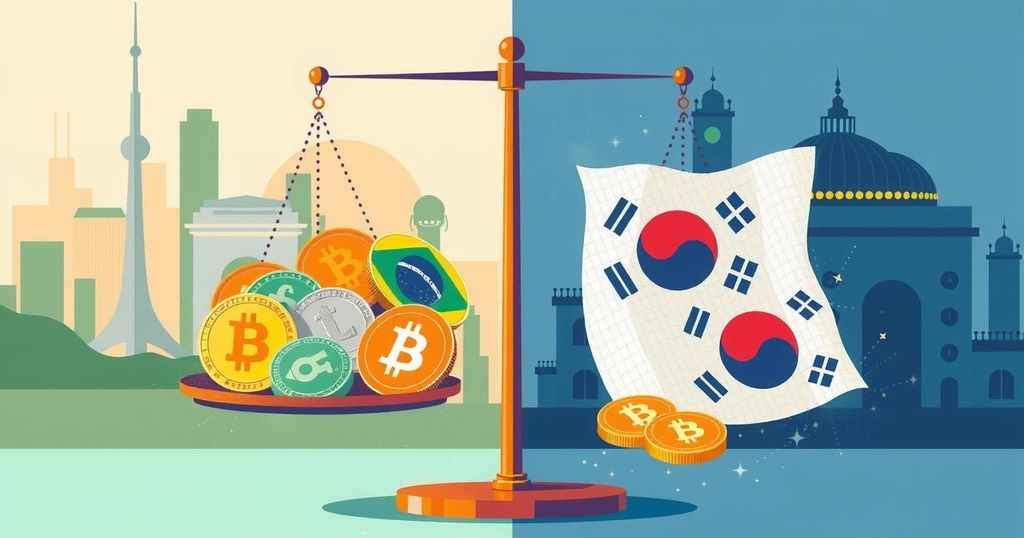Contrasting National Approaches to Bitcoin: Brazil’s Salary Bill and South Korea’s Rejection

Brazil is advancing a bill to allow salary payments in Bitcoin, aiming to bolster its fintech sector. In contrast, South Korea’s central bank has rejected Bitcoin as part of its foreign reserves due to volatility concerns. This situation underscores the global divide regarding Bitcoin’s role in the financial system.
Bitcoin is creating distinct divisions among nations regarding its adoption and regulation. In Brazil, lawmakers are advancing a bill that would allow salary payments in Bitcoin, while South Korea’s central bank has firmly rejected the concept of including Bitcoin in its foreign exchange reserves due to concerns over its inherent volatility.
Federal Deputy Luiz Philippe de Orleans e Bragança has proposed legislation permitting employees to receive up to 50% of their salary in Bitcoin. This initiative, as reported by Cointelegraph, seeks to enhance Brazil’s financial technology landscape and attract investments in cryptocurrency, drawing inspiration from countries such as Japan, Switzerland, and Portugal where similar practices are already in place.
In contrast, the Bank of Korea (BOK) has decided against integrating Bitcoin into its foreign exchange reserves. According to the Korea Economic Daily, the BOK cited Bitcoin’s significant price fluctuations and its inability to satisfy the International Monetary Fund’s (IMF) standards concerning liquidity, market conditions, and credit risk management as reasons for this decision.
Globally, opinions on Bitcoin’s role are sharply divided. While Brazil views Bitcoin as a means to modernize payroll systems, South Korea expresses skepticism regarding its stability. The BOK contends that the volatility of Bitcoin could inflate transaction costs during conversions to cash. Nevertheless, the adoption of Bitcoin continues to grow within various financial markets around the world.
This divide raises an important question: can Bitcoin truly be recognized as a legitimate financial asset? If Brazil’s bill is enacted, it may encourage increasing numbers of companies to adopt cryptocurrency for payroll. However, skepticism from South Korea and other nations indicates that significant challenges remain before Bitcoin achieves widespread acceptance. As of the latest reports, Bitcoin is valued at $82,645.
In summary, Brazil is moving forward with a legislative approach to facilitate Bitcoin salary payments, while South Korea remains cautious, opting to exclude Bitcoin from its foreign exchange reserves due to concerns about volatility. This juxtaposition highlights the differing perspectives and regulatory frameworks surrounding Bitcoin across nations, suggesting a complex future for cryptocurrency as a financial asset.
Original Source: markets.businessinsider.com








